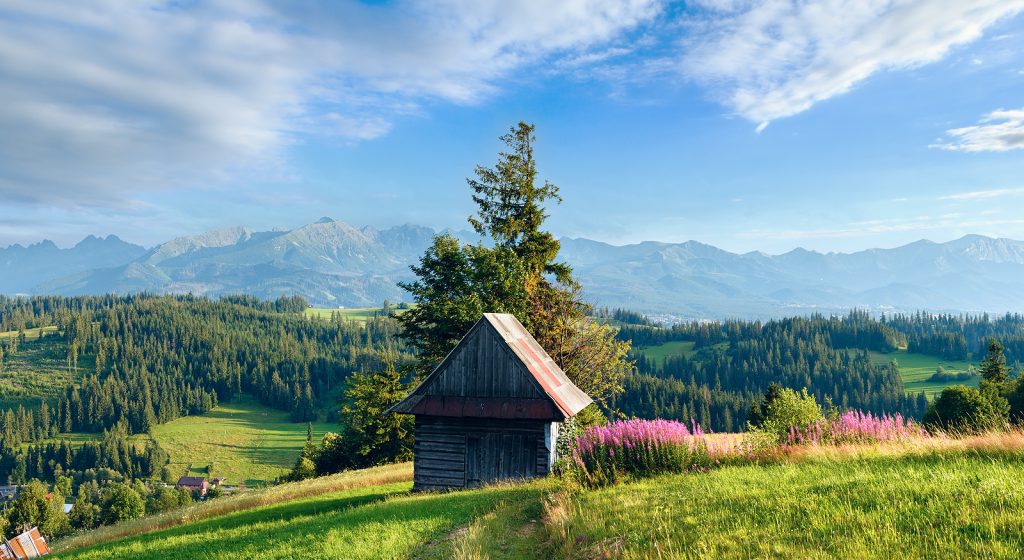Each of these books (all available in English) offers a unique perspective on Poland, its history, and its people. Whether you’re interested in war, culture, economics, or politics, these 10 books – a mix of fiction and non-fiction – will provide you with a deeper understanding of modern Poland.
Poland: A History by Adam Zamoyski
From its early beginnings as a tribal community to the present day, Zamoyski explores Poland’s political, social, and cultural development through various historical events and figures. He delves into the country’s struggles with foreign occupation, wars, political turmoil, and economic upheaval, as well as its moments of artistic and intellectual brilliance.
God’s Playground: A History of Poland by Norman Davies
Written by probably the leading English-language authority on Poland, this epic but never dull two-volume work is a definitive guide to Poland’s history. It provides a detailed account of the country’s evolution, from its origins to its contemporary status in the European Union. Davies emphasizes the cultural history of Poland through a presentation of extensive poetical, literary, and documentary texts in English translation.
Warsaw 1944: Hitler, Himmler, and the Crushing of a City by Alexandra Richie
Richie’s book offers a detailed account of the Warsaw Uprising – a brave but ultimately doomed 1944 revolt against Nazi occupation – from the political, social, and military factors that led to it, its eventual defeat, and the brutal Nazi reprisals that followed. It offers a deep understanding of the limitless resilience and courage of the Polish people during World War II.
The Peasant Prince: Thaddeus Kosciuszko and the Age of Revolution by Alex Storozynski
This biography of Thaddeus Kosciuszko, a Polish military engineer, statesman, and military leader who became a national hero not just in Poland but in Belarus, France, Lithuania, and the US, provides insight into the country’s role in the Age of Revolution. It’s a fascinating read for those interested in Poland’s influence on global history.
Iron Curtain: The Crushing of Eastern Europe 1944-1956 by Anne Applebaum
Pulitzer Prize-winning author Anne Applebaum explores the early years of communist rule in Eastern Europe. The book highlights the methods used by the Soviets to impose control in countries like Poland, Hungary, and East Germany, and explores the impact that Soviet-backed regimes had on the people living in these countries.

A Country in the Moon: Travels in Search of the Heart of Poland by Michael Moran
Moran’s travelogue offers an accurate portrait of Poland in the years immediately following the fall of communism, blending history, culture, and personal experiences. Throughout his travels in Poland, Moran encounters a diverse range of people – from farmers to politicians, artists to activists – and explores the impact of World War II and the communist era on the Polish psyche.
Primeval and Other Times by Olga Tokarczuk
The third novel by Nobel laureate Olga Tokarczuk’s, first published in 1996, offers a magical realist exploration of 20th-century Poland. Set in the fictional but instantly recognisable central Polish village of Prawiek the novel provides a unique lens through which to view the country’s history and culture. It is an exploration of the cyclical nature of life and how our actions can have far-reaching consequences.
The Zookeeper’s Wife: A War Story by Diane Ackerman
The incredible yet true story of zookeepers Jan and Antonina Żabiński, who managed to save hundreds of Polish Jews during World War II by hiding them in Warsaw Zoo. Ackerman’s skill as a storyteller makes the book alternatingly funny, moving, and terrifying. It is a powerful tale of bravery, compassion, and resilience in the face of unimaginable horror.
Poland’s New Capitalism by Jane Hardy
Hardy does an excellent job of tracing the trajectory of Poland’s at times difficult transition from a socialist planned economy to a market-based capitalist system. She provides detailed accounts of the challenges faced by the Polish government and Polish businesses during this process, and delves into the social and cultural transformations that have accompanied the transition.
The Witcher series by Andrzej Sapkowski
While primarily a fantasy series (and perhaps best known around the world as a hugely popular Netflix show), Sapkowski’s books are deeply rooted in Polish folklore and history, weaving an intricate world of vivid characters and nuanced political intrigue. They offer a unique, albeit indirect, insight into Polish culture and mentality.
Unlike many news and information platforms, Emerging Europe is free to read, and always will be. There is no paywall here. We are independent, not affiliated with nor representing any political party or business organisation. We want the very best for emerging Europe, nothing more, nothing less. Your support will help us continue to spread the word about this amazing region.
You can contribute here. Thank you.


